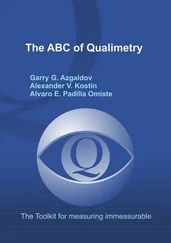“Because it's polite,” said Mma Makutsi. “That is why, Mma. There are some things that are polite, and there are some things that are rude. It is polite to arrive ten minutes early.”
Mma Ramotswe pursed her lips. Mma Makutsi might be a person of firm views, and she might be somebody whom one would normally treat with great care, being slightly given to explosive reactions, but was it right to allow her to go through life believing something so clearly misguided as this? Mma Ramotswe thought not.
“Well, Mma, perhaps we should just think about it a bit.”
“No need,” said Mma Makutsi firmly, lowering herself onto a chair at the kitchen table. “The rules of good behaviour are firm, Mma, as you well know. We know that it is wrong to take a present with one hand-we know that. It is just there, that rule, at least in Botswana. There may be countries where they have not heard of this-I know that-but I am not talking about such places. I am talking about Botswana. We cannot question these things.”
Mma Ramotswe took a pan down from the shelf. “Yes,” she said. “You are right, Mma, about these things. I would never say that you are wrong.”
“Good,” said Mma Makutsi.
“But at the same time,” Mma Ramotswe went on, “it is possible to look at these rules and see what lies behind them. That tells us why they exist. The reason for the rule against taking a present with one hand is that it looks as if you don't really appreciate the present-that you can only be bothered to use one hand to take it. That is why that one is there.”
Mma Makutsi was silent.
Mma Ramotswe took the opportunity to continue. “And the rule about calling out Ko, ko before you go into a person's house is also there for a reason. If you do not call out in that way, then you may find the person who lives in the house without their clothes on or busy with something else. You never know what you will see in another person's house.”
Again Mma Makutsi said nothing. Emboldened, Mma Ramotswe moved on to the subject of arriving early. “Now, if we think about the rule as to when you should arrive…”
Mma Makutsi broke her silence. She spoke loudly-and in a tone of authority. “That rule says ten minutes early, Mma Ramotswe. That is what it says.”
“But let us look at that, Mma,” said Mma Ramotswe. “Why should you arrive ten minutes early?”
“Because of the rule.”
“No. What is the reason behind the rule, Mma? If you arrive ten minutes early, then do you not think that it might be awkward for the person you're going to see? Not always, of course, but sometimes.”
“No,” said Mma Makutsi.
Mma Ramotswe tried again. “You see, that person may not have finished cooking… She may have to look for a saucepan, or something like that. She may have to get things out of the fridge…” She made her way towards the fridge and took out the pieces of chicken she had set aside for their dinner.
Mma Makutsi looked unconvinced. “I still think that it is better to be early, Mma. And that is why the rule is: always arrive ten minutes early.”
Mma Ramotswe decided that this was not an argument she could win. She would have to wait until the matter came up again in print-only then would it be possible to present Mma Makutsi with evidence capable of persuading her that she was wrong.
“Well, maybe there are two views on this,” Mma Ramotswe suggested mildly.
Mma Makutsi nodded vigorously. “Yes. A right one and a wrong one, Mma.”
Mma Ramotswe turned away to hide a smile. She had to admire Mma Makutsi; so many people these days had no idea of what they believed and were quite happy to bend with whatever wind was blowing. Mma Makutsi was not like that.
She changed the subject. “We need to talk about the Molofololo case,” she said. “I have to get this chicken on the stove, but we can talk while I am cooking.”
“And I can help you,” offered Mma Makutsi.
Mma Ramotswe gave her assistant the task of peeling the potatoes while she relayed to her what she had learned at Big Man Tafa's house.
“So far,” she began, “we know this: Big Man Tafa, the goalkeeper, wants to be captain. He thinks that Rops is past his best and should retire…”
“To the cattle post,” interjected Mma Makutsi.
“Yes, that is what his wife said. But there is more.”
Mma Makutsi, having peeled the first potato, held it up against the light. “They must have talked a lot, Mma.”
Mma Ramotswe explained that she had also talked to an informant on the street. “I learned that Big Man Tafa does not like Mr. Molofololo. He said that he is always interfering. And then I learned that Big Man owes money. At least ten thousand pula.”
Mma Makutsi made her disapproval clear. “Ten thousand pula! That is a lot, Mma. That gives him a very powerful motive, don't you think?”
Mma Ramotswe agreed, but pointed out that the person with the most obvious motive by no means always acts upon it. Motives, she reminded Mma Makutsi, could be what Clovis Andersen described as red herrings. She remembered the very passage, which she quoted to Mma Makutsi. Always remember that life is never what we think it will be. There are always red herrings and their job is to mislead you. Never forget that!
“So you don't think that it's Big Man Tafa?” asked Mma Makutsi.
Mma Ramotswe looked thoughtful. “No, I do not think it's him, Mma. There are many reasons for it to be him, but I do not think it is.”
“Why not?”
“Because he doesn't smell guilty,” said Mma Ramotswe. “You know how it is, Mma? Your nose tells you a lot of things. We must listen to our noses.” She was silent for a moment, again weighing Big Man in the balance. No, it was not him. “No, Mma, Big Man is full of ambition, and he does not like Rops very much. But when I suggested to him that somebody was throwing matches away, I could tell that he was genuinely shocked. The nose, you see.”
Mma Makutsi found her eyes drawn inexorably to her employer's nose. It was not an exceptional nose in any way, and she wondered why it should have a greater ability than any other nose in this respect. But she thought that Mma Ramotswe was right; noses were useful and they did tell us a lot.
“And the teacher?” she asked. “What did your nose say about him?”
Mma Ramotswe tapped the side of her nose. “My nose was very clear on that one. The teacher is a very honest man.”
Mma Makutsi approved of this. “Teachers should be honest. It is a great pity, Mma, that these days teachers are just like everybody else. I do not think that is right.”
Mma Ramotswe had views on that-she had great respect for teachers-but she did not want to get into a discussion of that just now. “Not only was he honest,” said Mma Ramotswe, “he was very fit. He took me to show me the new school gymnasium-a very fine room, Mma, with some ropes for children to swing on and a trampoline, Mma. He invited me to step onto the trampoline while we talked.”
Mma Makutsi shrieked. “You didn't agree, did you, Mma?”
“I'm afraid that I did,” said Mma Ramotswe. “I got onto it with him, and he started to bounce. That made me start to bounce up and down too. We talked that way.”
Mma Makutsi said that she would have liked to have seen that. “I would not have laughed at you, Mma Ramotswe,” she said. “But I would still have liked very much to see that. Did you find anything out about him?”
“Only that he is very keen,” said Mma Ramotswe. “He likes everybody on the team-he had no bad words for anybody, and he even praised Mr. Molofololo. He said that he was very grateful to him for having given him a place on the team. And then he said that he was sure that the team would start to win again soon, especially since he was now on it. He said that he would make it his business to see that they won in future.”
Читать дальше











